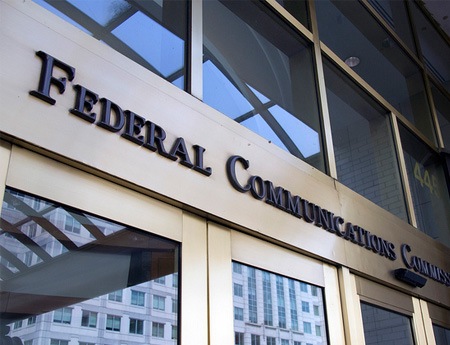Privacy Rule Followers Make Opinions Public
The smarter way to stay on top of the multichannel video marketplace. Sign up below.
You are now subscribed
Your newsletter sign-up was successful

Reaction flooded into the FCC Wednesday (March 1) on both sides of the issue after the FCC commissioners voted 2-1 to stay implementation of the FCC's new data security rules so the new FCC can review challenges to the broadband privacy framework of which those rules were a part.
“Today’s FCC action to issue a temporary stay of the data security regulation is a welcome recognition that consumers benefit most when privacy protections are consistently applied throughout the internet ecosystem,"
said NCTA: The Internet & Television Association. "As service providers, our companies are committed to providing a quality Internet experience that protects the security of personal information, and we will continue to operate with that commitment as the FTC and FCC pursue further action to harmonize online privacy protections.”
Transpose the acronym to NTCA, and the reaction was much the same:
“We’re encouraged by this temporary stay," asid Shirley Bloomfield, CEO of NTCA-The Rural Broadband Association. "This rule in particular and broader one-sided privacy regulations more generally create tremendous burdens on one portion of the internet ecosystem even as they set false expectations for consumers about what data are actually protected online. NTCA looks forward to working with the FCC, the FTC and other stakeholders on a common-sense approach that gives consumers information and consistent protections across their online experience.”
“As ITTA said when the previous FCC issued unduly expansive, new consumer privacy rules four months ago, these sector-specific regulations disproportionally disadvantage ISPs vis-à-vis edge providers. Thus, ITTA welcomes today’s action by the FCC to stay a portion of these rules that otherwise would have gone into effect tomorrow," said Genny Morelli, president of ITTA, which represents mid-sized communications companies.
“The FCC acted today to address aspects of the FCC’s privacy rules that went beyond the well-developed FTC framework and that created unnecessary consumer confusion," said AT&T SVP of federal regulatory, Joan Marsh. "A consistent and uniform framework that covers the entire Internet ecosystem, and is enforced by one government entity, is the most effective way to protect the privacy rights of consumers. That was the status quo before the FCC intervened and it is the right approach going forward.”
Verizon's chief privacy officer, Karen Zacharia, joined the chorus of industry praise.
“The FCC has taken an important step towards restoring a consistent and uniform framework for addressing data security and privacy standards for all online providers. Verizon cares deeply about the security of our customers’ data and maintaining our customers’ trust is critical in each facet of our operations. From the outset of this proceeding, we stressed the importance of creating a consistent approach to privacy and data security that gives consumers the same information and choices about the use of their data, regardless of the type of company they interact with online.”
“Hitting the pause button on these new rules is the right thing to do,” said Alex Phillips, president of the Wireless Internet Service Providers Association. “We appreciated the FCC’s efforts to reduce the burden of these regulations for smaller providers, but compliance with the new data security rules on March 2 would crate a significant burden on our members. The FCC’s action today will afford the agency time to reconsider these rules.”
“Today’s FCC action is a sensible, pro-consumer approach which maintains the status quo for customers that has existed throughout the FCC’s proceeding," said Comcast VP Sena Fitzmaurice. "Consumers remain protected by the safeguards in place for the past two years, as well as the recently announced ISP privacy principles. This will all be achieved without subjecting consumers to regulations that are inconsistent with the FTC’s privacy framework for other companies and that exceed the statute. The action allows the FCC sufficient time to fully analyze the pending petitions for reconsideration and to make informed decisions before any complex and unnecessary rules become effective.”
There were discouraging words as well.
“Chairman Pai has fired his opening salvo in the war on the Open Internet Order and broadband privacy protections are the first victim," said Sen. Ed Markey (D-Mass.), who earlier in the week pledged to fight any rollback of the privacy regs. "This carve-out for the broadband industry will make consumers’ information more vulnerable to breaches and unauthorized use. This suspension is just a preview of coming attractions. Chairman Pai and Republicans in Congress want to roll back critical privacy protections and leave consumers with no defense against abusive invasions of their privacy by their broadband provider. I will fight any attempts by this anti-consumer FCC to harm or undermine the broadband privacy rules.”
“After finally gaining basic privacy protections for broadband providers last year, it’s outrageous that Chairman Pai will now remove the simple rule that internet service providers must take reasonable data security measures to protect their customers’ information," said Chris Lewis, VP at Public Knowledge. "This is not a controversial requirement.
“This elimination of basic data security rules gives ISPs a free ride while online services and other edge providers are still required to take reasonable measures to protect their customers’ information under the FTC’s framework. That is not a level playing field. It creates a huge gap in consumer protections where websites have data security requirements, while ISPs with a direct customer relationship do not."
The smarter way to stay on top of the multichannel video marketplace. Sign up below.
Contributing editor John Eggerton has been an editor and/or writer on media regulation, legislation and policy for over four decades, including covering the FCC, FTC, Congress, the major media trade associations, and the federal courts. In addition to Multichannel News and Broadcasting + Cable, his work has appeared in Radio World, TV Technology, TV Fax, This Week in Consumer Electronics, Variety and the Encyclopedia Britannica.

